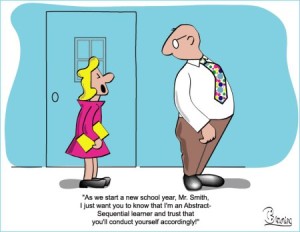
There is nothing quite like studying for a bar exam. Think about it less like traditional studying and more like practicing or training. Training that an elite athlete might do to prepare for the big race or that black diamond slope. It’s the repetitive “doing” that forces learners to get better, not mindlessly viewing lectures or reading outlines. Here are some examples to help illustrate the distinction:
Studying for the Bar Exam:
- Reading text outlines over-and-over and hoping it sinks in
- Watching bar exam lectures and taking notes or filling in blanks
Training For the Bar Exam:
- Using Flashcards
- Quizzes that give immediate results and explanations
- Writing essays and getting feedback
It’s not that students should eliminate all studying and do all training. Some studying is necessary. But most students devote about three-quarters of their time to studying, and only one-quarter to training.This is exactly opposite of what most students should do. This is also a scheduling issue. Think about your best and most productive time of day, and schedule your bar exam training for that time. Save the studying tasks for the time of day when your mind might be less sharp or less engaged.
The Learning Styles Myth
 In years past, educators focused on a student’s particular “learning style” and tried to create lessons that cater to the various learning styles. You may have heard of these learning styles: visual learner, auditory learner, kinesthetic learner, and so on. Even though psychologists have pretty much universally debunked this idea, it continues to persist in the minds of people who learned it years ago. More recent follow-up research shows that people are capable of learning in any number of ways. Teachers and learners should conform their strategies to the type subject matter they are teaching, rather than to any perceived personal characteristics. In other words, instead of thinking only about how you learn best, also consider how best to learn the particular kind of material in front of you.
In years past, educators focused on a student’s particular “learning style” and tried to create lessons that cater to the various learning styles. You may have heard of these learning styles: visual learner, auditory learner, kinesthetic learner, and so on. Even though psychologists have pretty much universally debunked this idea, it continues to persist in the minds of people who learned it years ago. More recent follow-up research shows that people are capable of learning in any number of ways. Teachers and learners should conform their strategies to the type subject matter they are teaching, rather than to any perceived personal characteristics. In other words, instead of thinking only about how you learn best, also consider how best to learn the particular kind of material in front of you.
Being Wrong Works
When your subject matter requires applying memorized rules to factual situations, one of the best ways to learn is to repeatedly be wrong. We hate being wrong. I suspect this strong aversion to being wrong is more prevalent among law students and lawyers than the population at large, but we can use it to our advantage. An example of this is using your bar prep course’s online MBE quizzes. When you’re still trying to memorize the rules in the early stages of MBE study, change the settings (if possible in your course) so that the quiz instantly grades each question as you answer it. This way, when you get one wrong it will immediately tell you so, and give you the correct rule. This instant interruption is annoying. So annoying that you will work very hard to remember the rule. As you get better, you can re-set the quizzes so that you are graded at the end of the quiz instead of after each question. This is one example of how to learn by training instead of by studying. As you practice, the instant feedback trains you to focus and recall.
Check out LexBar, the online course that can help boost your training for the Virginia Bar Exam.
Train, Train, Train
Engage yourself in those features of your course that are active training with immediate feedback. Don’t ‘zone out’ watching lectures for a whole day and then try to convince yourself that you had a productive bar prep day. Consider yourself an athlete; train for the bar.
